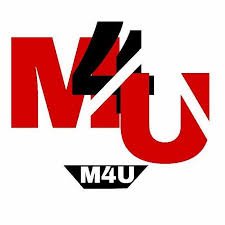Business
Ultimate Guide to Driveway Finance: 7 Key Tips to Secure the Best Deal in 2024

Table of Contents
Learn everything you need to know about Driveway Finance with this comprehensive guide. Discover the 7 most important tips to secure the best financing for your driveway in 2024.
Ultimate Guide to Driveway Finance: 7 Key Tips to Secure the Best Deal in 2024
When it comes to home improvement projects, one of the most important aspects to consider is driveway finance. Whether you are looking to install a new driveway, repair an existing one, or upgrade your driveway’s materials, financing the cost can seem overwhelming. However, with the right knowledge and strategies, you can secure affordable financing for your driveway project without breaking the bank.
In this comprehensive guide, we will walk you through everything you need to know about driveway finance, from understanding your financing options to expert tips on securing the best deal. You’ll learn how to navigate different types of loans, how to estimate the cost of your driveway project, and how to make the most of financing offers.
Let’s dive in and make your driveway dreams a reality with the best financing option!
1. What is Driveway Finance?
Before we dive into financing strategies, let’s first explore what driveway finance actually means. Driveway finance refers to the process of securing a loan or financing option to cover the costs of installing, repairing, or upgrading a driveway. This could include materials, labor, permits, and other related expenses.
a. Types of Driveway Financing Options
When considering driveway finance, there are several options available to homeowners. These financing options can be broken down into different categories, depending on your needs and financial situation. The most common types of driveway financing include home equity loans, personal loans, credit cards, and specialized contractor financing. Each option has its pros and cons, which we will explore in more detail later in this post.
b. Why Choose Financing for Your Driveway?
Many homeowners choose to finance their driveway projects because it allows them to spread out the cost over time. Driveway installation, particularly with high-quality materials like concrete, asphalt, or pavers, can be expensive. Financing allows you to break up the cost into manageable monthly payments, making the project more affordable and accessible.
2. How to Estimate Your Driveway Costs
Before applying for driveway finance, it’s important to have a clear understanding of how much the project will cost. Knowing the total cost upfront can help you choose the right financing option and avoid borrowing more than you need.
a. Factors That Affect Driveway Costs
The total cost of installing or repairing a driveway can vary depending on several factors. These include the size of your driveway, the materials you choose, labor costs, and any additional services required, such as excavation or grading. For example, a basic gravel driveway will cost significantly less than a custom concrete driveway with decorative finishes. It’s important to get multiple estimates from contractors and be clear on all the services included in the quote.
b. How to Get Accurate Estimates for Your Driveway Project
To accurately estimate the costs for your driveway project, it’s a good idea to get multiple quotes from local contractors. Provide them with the specifics of your project, such as the driveway size, material preferences, and any special features you want to add. Be sure to ask about any potential hidden costs, such as permits or unexpected labor fees. The more information you gather, the easier it will be to secure the right financing amount for your project.
3. Types of Driveway Finance Loans
There are several types of loans available to homeowners seeking driveway finance. Let’s take a closer look at each option to determine which one may be the best for your project.
a. Home Equity Loans
A home equity loan is one of the most common ways to finance a driveway project. With this type of loan, you borrow against the equity in your home. Since the loan is secured by your property, home equity loans tend to offer lower interest rates than unsecured loans. However, they also come with risks. If you are unable to make your payments, you could risk losing your home.
Home equity loans are ideal for large-scale driveway projects that require significant financing, as they often allow for larger loan amounts and longer repayment terms.
b. Personal Loans
Personal loans are another popular option for driveway finance. These loans are unsecured, meaning you don’t need to put up your home or other assets as collateral. While personal loans typically come with higher interest rates than home equity loans, they are less risky because there’s no risk of losing your home.
Personal loans are ideal for smaller driveway projects or for homeowners who don’t want to tap into their home equity. They can be used for anything from driveway repairs to upgrades like installing pavers or adding decorative features.
c. Credit Cards
Some homeowners choose to use credit cards for driveway finance if they have a high enough credit limit. This option is best for smaller projects or if you can pay off the balance quickly to avoid high interest rates. Credit cards may come with benefits like rewards or cash back, but they tend to have higher interest rates than personal or home equity loans, so it’s essential to pay off the balance as soon as possible to avoid accumulating debt.
4. Driveway Financing Through Contractors
In addition to traditional financing options, many contractors offer in-house financing or partner with lenders to provide financing solutions to their customers.
a. Contractor Financing Programs
Many driveway contractors have financing programs that allow you to make monthly payments directly to them. These programs are often easier to qualify for than traditional loans and can sometimes offer special promotions like zero-interest financing for a set period.
However, it’s important to carefully review the terms of these financing offers. Some contractor financing options may come with hidden fees or high-interest rates once the promotional period ends. Always ask for the full terms and conditions before agreeing to any contractor financing deals.
b. Benefits of Contractor Financing
One of the main advantages of contractor financing is the convenience. You can finance the project directly with the contractor, often without needing to apply for a separate loan. This streamlines the process and allows you to start your driveway project sooner. Additionally, some contractors offer flexible payment terms that can fit your budget.
5. Tips for Securing the Best Driveway Financing Deal
Once you’ve explored your financing options, the next step is to find the best deal. Here are seven key tips to help you secure the best driveway finance deal:
a. Shop Around for the Best Interest Rates
Interest rates can make a huge difference in the total cost of your driveway financing. Always compare rates from multiple lenders, including banks, credit unions, and contractors. Even a small difference in rates can add up to significant savings over time.
b. Check Your Credit Score
Your credit score plays a major role in determining the interest rates you’ll receive. Before applying for financing, check your credit score and take steps to improve it if necessary. A higher credit score will not only give you access to lower rates but may also help you qualify for larger loan amounts.
c. Consider the Loan Term
The length of the loan term will affect your monthly payments and the overall cost of your financing. A shorter loan term means higher monthly payments, but it will save you money on interest. On the other hand, a longer loan term results in lower monthly payments but may cost more in interest in the long run. Choose a term that fits your budget and goals.
d. Be Mindful of Hidden Fees
When reviewing financing options, be sure to ask about any additional fees or charges. Some loans may come with application fees, early repayment penalties, or origination fees. Understanding all the costs involved will help you make a more informed decision.
e. Look for Promotions or Discounts
Some lenders or contractors offer special promotions, such as zero-interest financing for the first 12 months. Take advantage of these promotions if possible, as they can save you money. However, always ensure you understand the terms of the promotion, including when the interest rate may increase.
f. Understand Your Payment Schedule
Before committing to a loan, make sure you fully understand the payment schedule. Know when your payments are due, how much they will be, and how long the loan term lasts. Staying organized will help you avoid late payments and fees.
g. Consider a Co-Signer
If your credit score is low, consider asking a family member or friend to co-sign the loan. A co-signer with a stronger credit history can help you secure better financing terms, including lower interest rates.
6. Conclusion: Making Your Driveway Dreams a Reality with Driveway Finance
Securing the right driveway finance is essential for making your driveway project a reality. Whether you choose a home equity loan, personal loan, credit card, or contractor financing, it’s important to explore all your options and choose the one that best fits your budget and goals.
By following the tips in this guide and doing your research, you can secure affordable financing for your driveway project and create a beautiful, functional space for your home. Best of luck with your driveway project!
read more:Ultimate Guide to Nissan Finance: 7 Powerful Tips to Secure the Best Loan in 2024

-

 Blog11 months ago
Blog11 months agoJessica Dorrell: The Scandal, Life Beyond the Headlines, and Career Path
-

 Blog10 months ago
Blog10 months agoAlia Bhatt’s Daughter: A New Chapter in the Bollywood Star’s Life
-

 Blog11 months ago
Blog11 months agoRick Hoffman’s Private Life and Wife: Insights into the Suits Actor’s Personal Journey
-

 Lifestyle9 months ago
Lifestyle9 months agoA Guide to Exclusive Lifestyle Events
-

 Blog10 months ago
Blog10 months agoAngel Reese’s Net Worth: Rising Star in Women’s Basketball
-

 Blog9 months ago
Blog9 months ago7 Powerful Truths Hidden in Runaway Lyrics You Need to Know
-

 Blog9 months ago
Blog9 months agoM4U Free Movies: Your Guide to Free Online Streaming
-

 Blog10 months ago
Blog10 months agoM4uMovies: Exploring the Popular Online Streaming Platform


